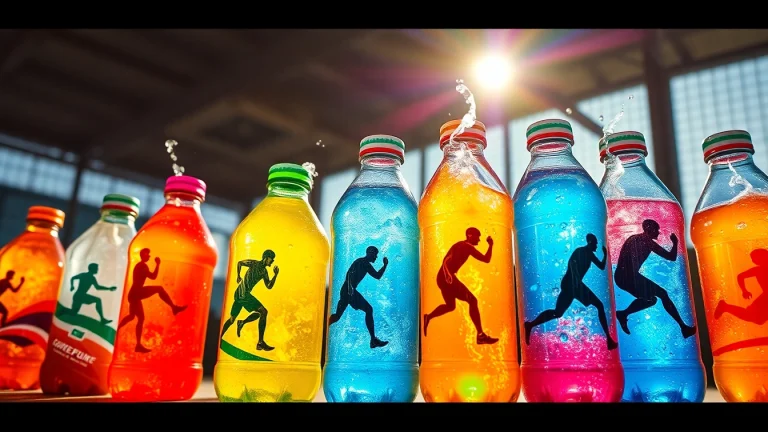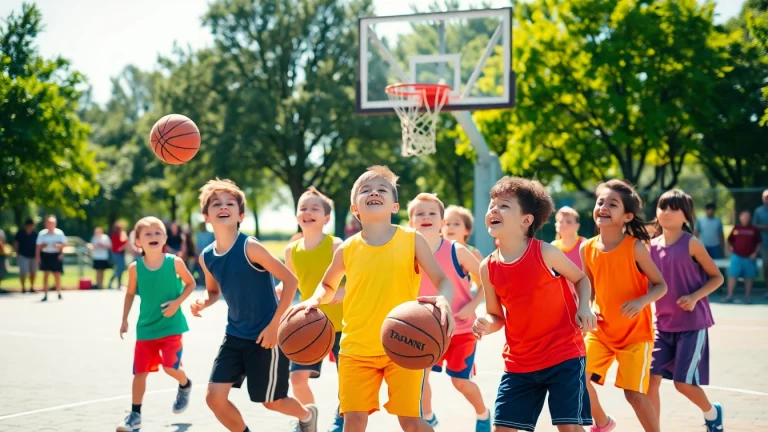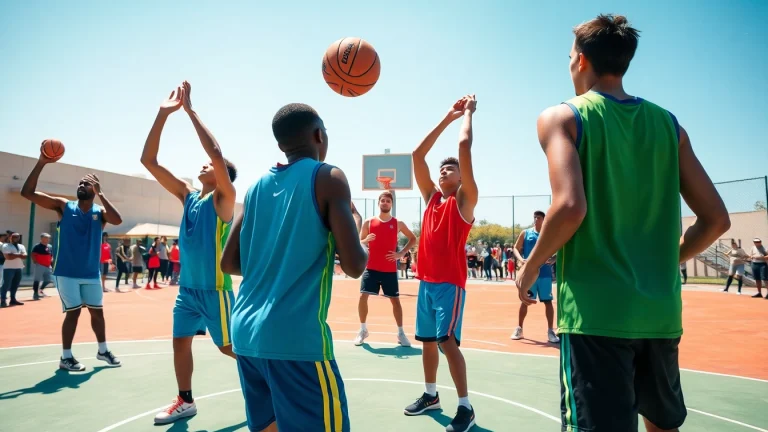
The Essential Guide to Sports Drinks: Benefits, Types, and Best Choices for Athletes
Understanding Sports Drinks
Sports drinks have become popular among athletes and fitness enthusiasts alike, serving as an essential source of hydration and energy during rigorous physical activities. Often confused with soda or water, these formulations are designed specifically to meet the hydration and energy needs of active individuals. Sports drinks are enhanced beverages containing electrolytes and carbohydrates that contribute to performance and recovery.
What Are Sports Drinks?
Sports drinks, also known as electrolyte drinks, are functional beverages engineered to help athletes replace essential fluids and electrolytes lost through sweat during physical exertion. The primary aim of these drinks is to prevent dehydration and enhance endurance by replenishing lost nutrients, which can be critical during prolonged high-intensity exercise.
Types of Sports Drinks
Sports drinks can be categorized into various types based on their formulation and intended use:
- Isotonic Drinks: These contain similar concentrations of salt and sugar as the human body, providing adequate hydration along with carbohydrates for energy. Gatorade is one of the most recognized isotonic drinks.
- Hypotonic Drinks: These have lower concentrations of sugar and salt compared to body fluids and are absorbed quickly, making them suitable for hydration without the need for a major energy boost. Examples include certain types of electrolyte water.
- Hypertonic Drinks: These have higher concentrations of sugar and salt, making them ideal for providing energy and electrolytes but not for hydration. They are best consumed after workouts or prolonged exercise sessions.
Benefits of Consuming Sports Drinks
Consuming sports drinks offers several benefits, especially during intense physical activities:
- Enhanced Hydration: Sports drinks replenish lost fluids more effectively than water alone, thanks to their electrolyte content.
- Improved Performance: The carbohydrates present in sports drinks can provide a quick energy boost, enhancing endurance and performance.
- Faster Recovery: After exercise, sports drinks help restore glycogen levels, facilitating quicker recovery and muscle repair.
- Electrolyte Balance: Key electrolytes like sodium and potassium are replenished, which helps maintain bodily functions during extended physical activities.
Key Ingredients in Sports Drinks
Electrolytes and Their Importance
Electrolytes, such as sodium, potassium, calcium, magnesium, and chloride, are crucial for muscle function, nerve signaling, and hydration. During strenuous exercise, these electrolytes are lost through sweat, and inadequate replenishment can lead to cramps, fatigue, and impaired performance. A well-formulated sports drink can effectively restore these essential minerals and help maintain optimal performance.
Understanding Carbohydrates in Sports Drinks
Carbohydrates are the primary source of energy for athletes. Sports drinks typically contain carbohydrates in the form of glucose, sucrose, or maltodextrin. The inclusion of carbohydrates not only helps to replenish energy stores but also stimulates insulin release, which can enhance recovery times by promoting nutrient uptake in muscle cells.
Natural vs. Artificial Ingredients
While many sports drinks are formulated with artificial flavors, colors, and sweeteners, there is a growing preference for natural ingredients among health-conscious consumers. Many brands are now offering organic options that use natural electrolytes from coconut water, fruit extracts, or herbal infusions. It is important for consumers to scrutinize labels to understand if they are getting natural or synthetic ingredients, depending on their health goals.
When to Use Sports Drinks
Optimal Timing for Consumption
Timing is crucial for maximizing the benefits of sports drinks. Ideally, athletes should consume sports drinks during and after intense exercise sessions. Here’s a guideline:
- Before exercise: Hydrate well in advance, which may include the use of sports drinks if prolonged physical activity is expected.
- During exercise: For sessions lasting longer than 60 minutes, continuous sipping of sports drinks can help replenish lost fluids and maintain energy levels.
- Post-exercise: Consuming sports drinks within 30 minutes post-exercise helps to restore glycogen stores and rehydrate effectively.
Differences in Use for Casual vs. Professional Athletes
While both casual and professional athletes can benefit from sports drinks, their usage context may differ significantly. Professional athletes often engage in strenuous training sessions regularly and may need to consume sports drinks more frequently to maintain optimal performance levels, especially during competitions. Casual athletes, on the other hand, may find water sufficient for general hydration, with sports drinks reserved for particularly intense activities.
Alternatives to Sports Drinks
For those who opt to avoid traditional sports drinks, several alternatives provide similar benefits:
- Coconut Water: A natural source of electrolytes, coconut water offers hydration with fewer calories than most commercial sports drinks.
- Electrolyte Tablets: These can dissolve in water and offer a low-calorie alternative for electrolyte replenishment without added sugars.
- Homemade Electrolyte Drink: Blending water with natural foods such as fruits, salt, and honey can create an effective alternative.
Choosing the Right Sports Drink
Top Brands in the Market
The sports drink market is competitive with several leading brands known for their unique formulations:
- Gatorade: One of the pioneers in sports drinks, Gatorade offers a wide range of flavors and formulations tailored for different physical activities.
- Powerade: Known for its affordability, Powerade provides essential electrolytes and a variety of flavors suitable for athletes.
- BODYARMOR: Promoting itself as a “superior hydration” drink, BODYARMOR uses coconut water and vitamins, attracting consumers seeking natural ingredients.
Health Considerations: Sugars and Calories
When choosing a sports drink, it is essential to consider the sugar and calorie content. Many commercial options contain high amounts of sugar, which may not be ideal for individuals looking to maintain a low-calorie diet. Selecting drinks with lower sugar content or those with natural sweeteners can be advantageous, especially for casual exercisers.
Reading Labels Effectively
Understanding how to read sports drink labels can influence consumer choices significantly:
- Ingredients List: Look for natural ingredients, avoiding excessive artificial additives.
- Nutritional Information: Pay attention to calorie counts, sugar content, and the amounts of electrolytes.
- Serving Size: Ensure the chosen drink fits within your hydration and calorie goals by checking the serving size as well.
Maximizing Performance with Sports Drinks
Hydration Strategies for Athletes
Hydration is key to athletic performance. Implementing a hydration strategy that includes sports drinks can significantly improve endurance and recovery. Athletes should monitor their hydration levels before, during, and after workouts to ensure they reach optimal performance. Hydration strategies can be customized based on individual sweat rates and the intensity of exercise.
Tips for Integrating Sports Drinks into Your Routine
To maximize the benefits of sports drinks, consider the following tips:
- Select the Right Formulation: Match the type of sports drink with the intensity and duration of your activity.
- Establish a Routine: Make hydration a habitual part of your exercise regimen, incorporating sports drinks based on your performance needs.
- Personalize Intake: Adjust the quantity of sports drinks you consume based on your body weight, exercise duration, and environmental conditions.
Measuring Effectiveness: How to Track Performance
Tracking performance before and after integrating sports drinks can help gauge their effectiveness. Athletes can consider metrics such as:
- Energy Levels: Assess how sports drinks impact energy during workouts.
- Recovery Time: Monitor how quickly you return to baseline after strenuous activity.
- Hydration Status: Keep track of urine color and volume to determine hydration levels.


